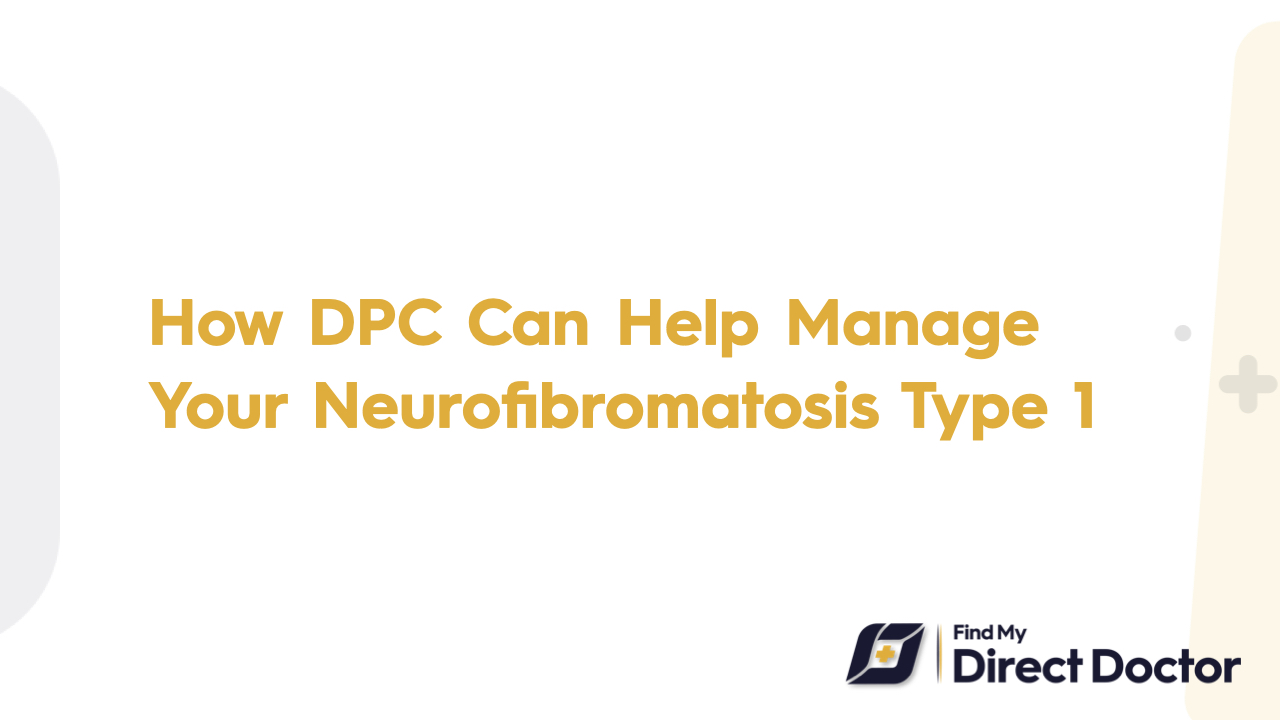



A genetic condition known as neurofibromatosis type 1 (NF1) mostly affects the nervous system and causes non-cancerous tumors called neurofibromas to form along the nerves. Additionally, the illness results in skin abnormalities including freckles in odd locations, such the crotch or armpits, and café-au-lait spots, which are light brown patches on the skin. Bone abnormalities, learning challenges, and optic nerve issues that might result in blindness are possible additional symptoms. Some people with NF1 may also have elevated blood pressure or a higher chance of developing other types of cancer. Individual differences in symptom severity can be substantial.

By offering individualized, consistent care, Direct Primary Care (DPC) can provide a patient-centered approach to addressing NF1. DPC makes it simpler for people with NF1 to get in touch with their primary care physician, guaranteeing that symptoms are routinely checked and treated. By fostering close communication between the patient and the medical staff, this approach makes it possible to promptly evaluate any new symptoms or modifications to the patient's condition. DPC providers are able to work with specialists to coordinate care, make sure the right testing is done, and provide a customized strategy for handling the mental and physical challenges of living with NF1.
The advantages of DPC for those with NF1 are substantial. Patients can escape the aggravation of lengthy wait times or convoluted referral procedures and obtain care quickly when they have direct access to their primary care physician. Frequent check-ins are made possible by DPC, which is crucial for patients with long-term illnesses like NF1, where continuous monitoring is necessary. Furthermore, DPC's emphasis on preventative care aids patients in managing possible issues at an early stage, which improves results. The concept encourages a comprehensive strategy that takes into account patients' mental and emotional health in addition to their physical health, which is crucial for those coping with the difficulties of a hereditary illness.
The treatment of NF1 in DPC is extremely individualized, guaranteeing that every patient's care is catered to their unique needs, problems, and symptoms. When new physical or cognitive issues appear, this tailored method enables early detection and intervention. In addition to providing education on managing the illness and assisting the patient throughout their healthcare journey, DPC providers collaborate closely with the patient to modify treatment regimens as needed. In order to help patients stay ahead of any problems and enhance their quality of life, DPC providers can provide proactive care by cultivating an ongoing relationship.
Previous Post